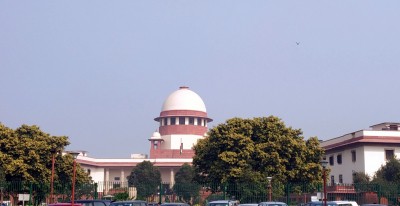New Delhi, Aug 26 : The Supreme Court on Wednesday held that the state governments have the power to decide the fee in connection with the registration number allocated to motor vehicles registered in their territory.
A bench of Justices L. Nageswara Rao and S. Ravindra Bhat said: “This court therefore, holds that the assignment of ‘distinctive marks’ i.e. registration numbers to motor vehicles (which includes the power to reserve and allocate them, for a specific fee) is a distinct service for which states or their authorities (such as the registering authorities, in this case) are entitled to charge a prescribed fee.”
The apex court set aside the verdict of the Madhya Pradesh High Court, which quashed Rule 55A of the Motor Vehicles Rules, 1994, framed by the state government, allowing authorities to charge a specific amount for fancy registration numbers for the vehicles as desired by the owners.
“Rule 55A of the MP Rules is not therefore, in excess of the powers conferred upon the state, by the Act or the Central Rules,” it said, observing that the high court assumed the state was not competent to make the legislation.
Rule 55A was introduced in 2001. It prescribed four different fees – Rs 15,000 – for the registration marks 1 to 9 in any series prevalent within the jurisdiction of the registering authority, and Rs 12,000 for reservation of marks from 10 to 100 in any series.
“For reservation of large series of numbers indicated in Rule 55A (c), Rs 10,000 and Rs 2,000 for reservation of any other number or numbers within 1000 from the last number assigned in the serial order,” noted the top court.
The MP High Court, in its judgement, had said: “The field of prescribing the fee for an application for registration has been exclusively conferred upon the Union Government, thus excluding from its sweep any State power to claim any manner of fee or amount as part of that task.”
The apex court bench allowed the appeal of the state government and concluded the high court judgement should be set aside. “In the present case, the state of MP derived its powers to frame the concerned rules, through the provisions of the Motor Vehicles Act itself,” it said.
Disclaimer: This story is auto-generated from IANS service.

